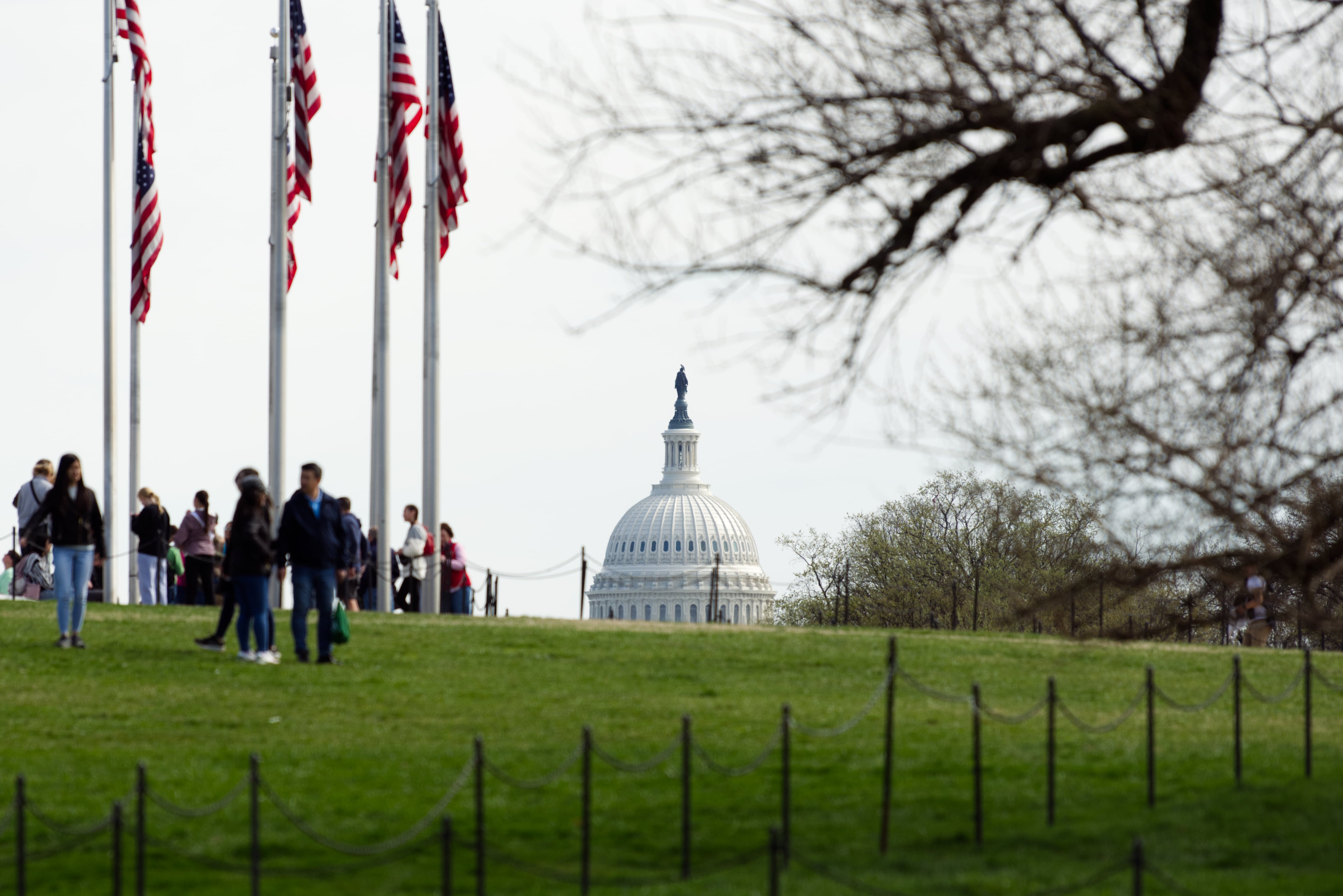WASHINGTON — A Russian woman was accused Friday of a sweeping effort to sway American public opinion through social media in the first federal case alleging foreign interference in the 2018 midterm election.
The Justice Department unsealed the criminal complaint on the same day that U.S. intelligence agencies, in a rare public statement, asserted that Russia, China, Iran and other countries were engaged in continuous efforts to influence American policy and voters in the upcoming elections and beyond.
The U.S. is concerned about the foreign campaigns "to undermine confidence in democratic institutions and influence public sentiment and government policies," the national security officials said. "These activities also may seek to influence voter perceptions and decision-making in the 2018 and 2020 U.S. elections."
The Justice Department prosecution targets Elena Alekseevna Khusyaynova, a St. Petersburg woman who prosecutors say helped manage the finances of a hidden but powerful Russian social media effort aimed at spreading distrust for American political candidates and causing divisions on hot-button social issues like immigration and gun control.
Prosecutors say Khusyaynova worked for the same social media troll farm that was indicted earlier this year by special counsel Robert Mueller as part of his investigation into potential coordination between Russia and the 2016 Trump presidential campaign. The social media effort outlined by prosecutors Friday largely mirrors Mueller's criminal case against three Russian companies, including the Internet Research Agency, and 13 Russians.
Since at least 2015, the group created thousands of false social media profiles and email accounts that appeared to be from people inside the U.S. and were aimed to "create and amplify divisive social and political content," including on significant current events, such as deadly shootings in South Carolina and Las Vegas, prosecutors said in court papers.
One fake persona, registered to "Bertha Malone," made over 400 Facebook posts containing inflammatory content. Another fake Facebook account, in the name of "Rachell Edison," made more than 700 posts focused on gun control and the Second Amendment.
The Russian organizers of the conspiracy advised that the posts should reflect various viewpoints, and it gave specific instructions to only share articles from certain news websites to correspond to specific political views, prosecutors said.
After one news article appeared online with the headline, "McCain Says Thinking a Wall Will Stop Illegal Immigration is 'Crazy,'" members of the group were told to brand the Republican senator as "an old geezer who has lost it and who long ago belonged in a home for the elderly." They were also told to say that McCain had a "pathological hatred toward Donald Trump and toward all his initiatives."
After another article appeared about Mueller last year, members of the troll farm were told to share the article and say that Mueller was a "puppet of the establishment" who had connections to the Democratic Party and "who says things that should either remove him from his position or disband the entire investigation commission."
Russian Deputy Foreign Minister Sergei Ryabkov said recently that Russia has no intention to interfere in the midterm elections in the U.S. or meddle elsewhere.
Friday's separate statement about foreign influence in U.S. elections was issued just weeks before the Nov. 6 elections by the Office of the Department of National Intelligence, the Justice Department, the FBI and the Department of Homeland Security.
Given the breadth of alleged interference by Russia, which includes the hacking of Democratic email accounts ahead of the 2016 presidential election, it was notable that the intelligence community identified two other nations in the same statement that did not provide specific examples of foreign meddling.
President Trump has often cast doubt on U.S. intelligence findings that Russia interfered in the 2016 election, as Mueller investigates whether Trump's campaign was connected. More recently, Trump has conceded a Russian role but has likened it to efforts of China and other nations.
Meanwhile, Vice President Mike Pence blasted China in a speech saying Russia's influence efforts in America pale in comparison with the covert and overt activities of the Chinese to interfere in the midterms and counter Trump's tough trade policies against Beijing.
But top administration officials have provided little evidence that China's activities are comparable to Russia's massive covert measures that were spelled out in previous indictments obtained by Mueller.
The officials have cited largely public steps taken by China, such as aiming tariffs at politically important states and pressuring U.S. businesses to speak out against the Trump administration.
Other countries are using social media to amplify divisive issues in American society and sponsor content in English-language media, such as Russia's RT and Sputnik news outlets, the security agencies' statement said. They also distribute propaganda and plant disinformation against political candidates, the departments said.
The agencies said they currently do not have any evidence that voting systems have been disrupted or compromised in ways that could result in changing vote counts or hampering the ability to tally votes in the midterms, which are fewer than 20 days away.
"Some state and local governments have reported attempts to access their networks, which often include online voter registration databases, using tactics that are available to state and nonstate cyber actors," they said.
But so far, they said, state and local officials have been able to prevent access or quickly mitigate these attempts.
Associated Press writers Michael Balsamo and Colleen Long contributed to this report.





